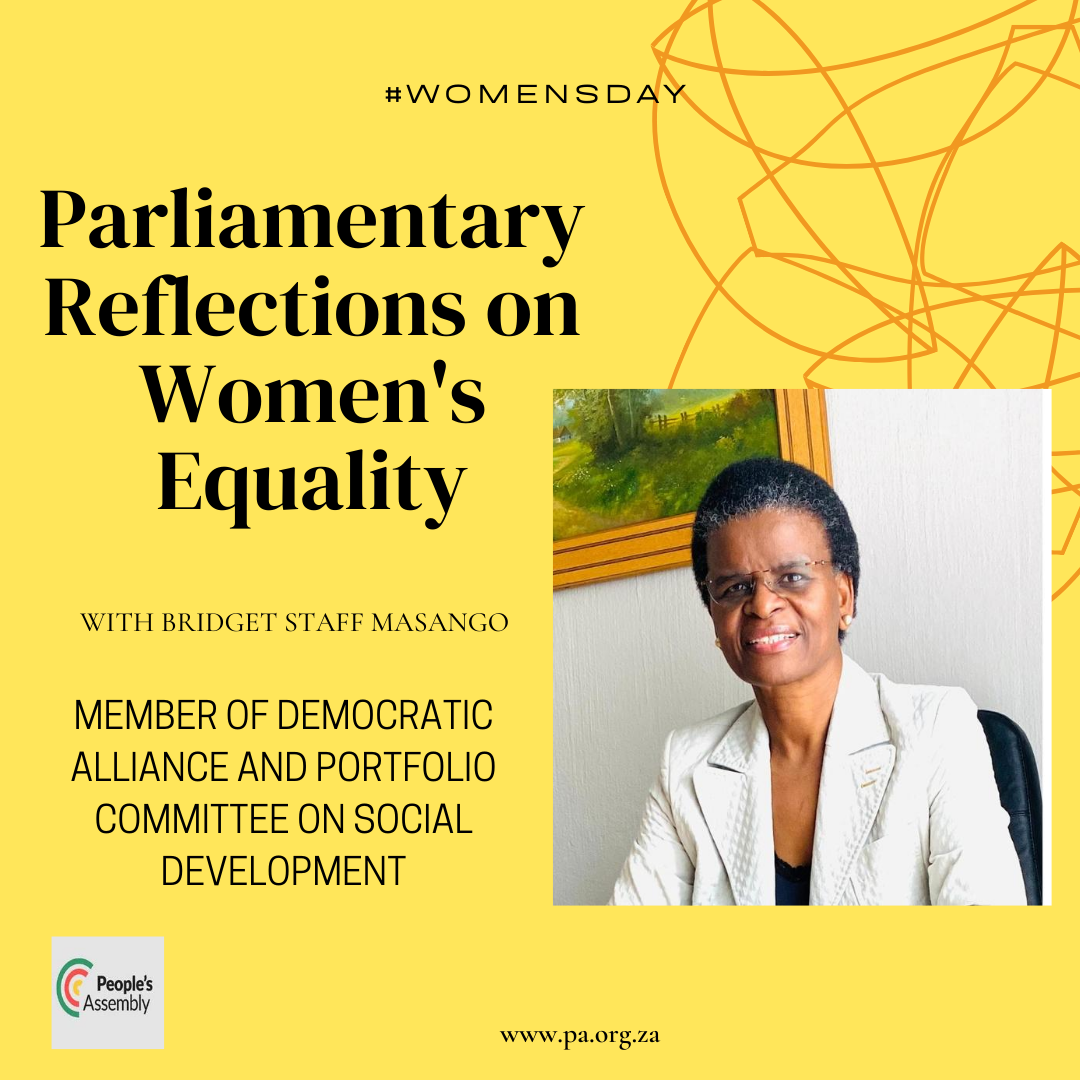
Women’s Day is an important day for reflection on how far our country has come with advancing equality and women's rights. In Parliament, a plethora of policies, frameworks and laws have been developed to advance equality and protect women. However, the question of how effective these policies are, is often times left answered.
We spoke to Ms Bridget Masango, a Member of Parliament in the National Assembly and a member of the Portfolio Committee on Social Development, about the government’s policy efforts in advancing equality for women in South Africa.
The South Africa's National Policy Framework for Women's Empowerment and Gender Equality is one of government’s policy efforts at narrowing the gender inequality gap. Do you think the Framework in its current form can narrow gender inequality in South Africa, and why?
South Africa is known for world-class frameworks and policies, and the National Policy Framework for Women’s Empowerment is no exception. There is no doubt that government has made efforts to implement the provisions of the framework, yet statistics are not painting a promising picture - the progress has been slow and monitoring and evaluation of that progress needs to be consistent for it to make the long overdue dent on gender inequality. There needs to be a more focused and deliberate collaboration among all stakeholders.
What kinds of policy gaps is the Portfolio Committee on Social Development exploring in advancing women equality and protecting women from Gender-Based Violence (GBV) and femicide?
The Department of Social Development (DSD) is one of the frontline departments in fighting against the scourge of GBV and femicide, and therefore the oversight responsibility is quite high for the committee. We have made it very clear to the department that programmes related to fighting GBV and femicide must enjoy priority from policy, resource allocation and implementation. It is important to make this consideration as the sector being served by the department is already buckling under the pressure of other social ills. Sufficient effort and value has been placed on developing documents (National Development Plan; Integrated National Programme of Action Addressing Violence Against Women and Children (POA:VAWC) and recently the National Gender-Based Violence and Femicide Strategic Plan) through thorough and focused consultation among all stakeholders. By implementing the programmes outlined in these documents, the DSD and other support departments will be saving lives of not only woman and children, but will be repairing the fabric of our society, ensuring social stability and cohesion. We are mindful of the financial resources that are required to do this work and have resolved that the Treasury must intervene in making funds available going forward. One of the sharpest criticisms of the failure of the National Programme of Action Addressing Violence Against Women and Children was that it was not costed at development stage. We cannot allow this to happen going forward as South Africa is unenviably labeled the rape capital of the world for a reason. The victims of the scourge are grandmothers, mothers, sisters, daughters, etc. who are in families – making GBV and femicide a societal issue.
What are your thoughts on women representivity in Parliament, do you think there remains a need to improve women representivity?
The South African Parliament is part of and a reflection of the broader South African society. The woman representation in Parliament needs to improve as should woman representation in other sectors. There are divergent but necessary views on how this long overdue change can happen. I am of the view that more work has to happen at early stages of development through deliberate programmes that the democratic dispensation has opened for all South Africans. The time for lip service when it comes to equality is over. Processes that bring people to Parliament must be conducive for women to succeed on the strength of their performance at local level structures.
What is your message to women on Women’s Day?
Women of this country have over the years, demonstrated resilience, strength against all odds, fortitude and hope during some of the hopeless situations. I am proud to be a woman in South African, to have learnt from and mentored by many amazing women. I therefore wish to thank all women of this nation for their abiding resilience and want to assure them that their contribution to building on the gains of those who have walked the path of changing the way society treats women, is not going unnoticed. May God bless women of South Africa.

Comments
Keep comments free of racism, sexism, homophobia and abusive language. People's Assembly reserves the right to delete and edit comments
(For newest comments first please choose 'Newest' from the 'Sort by' dropdown below.)